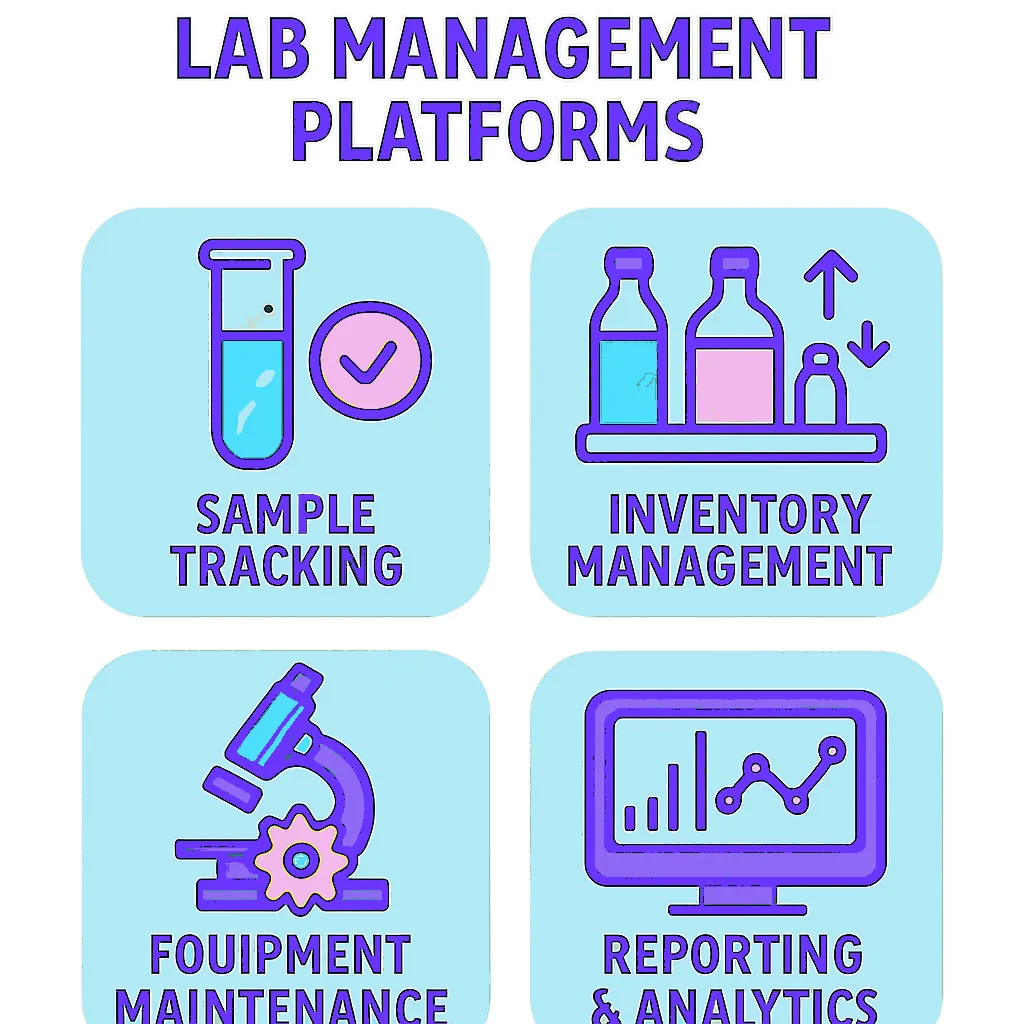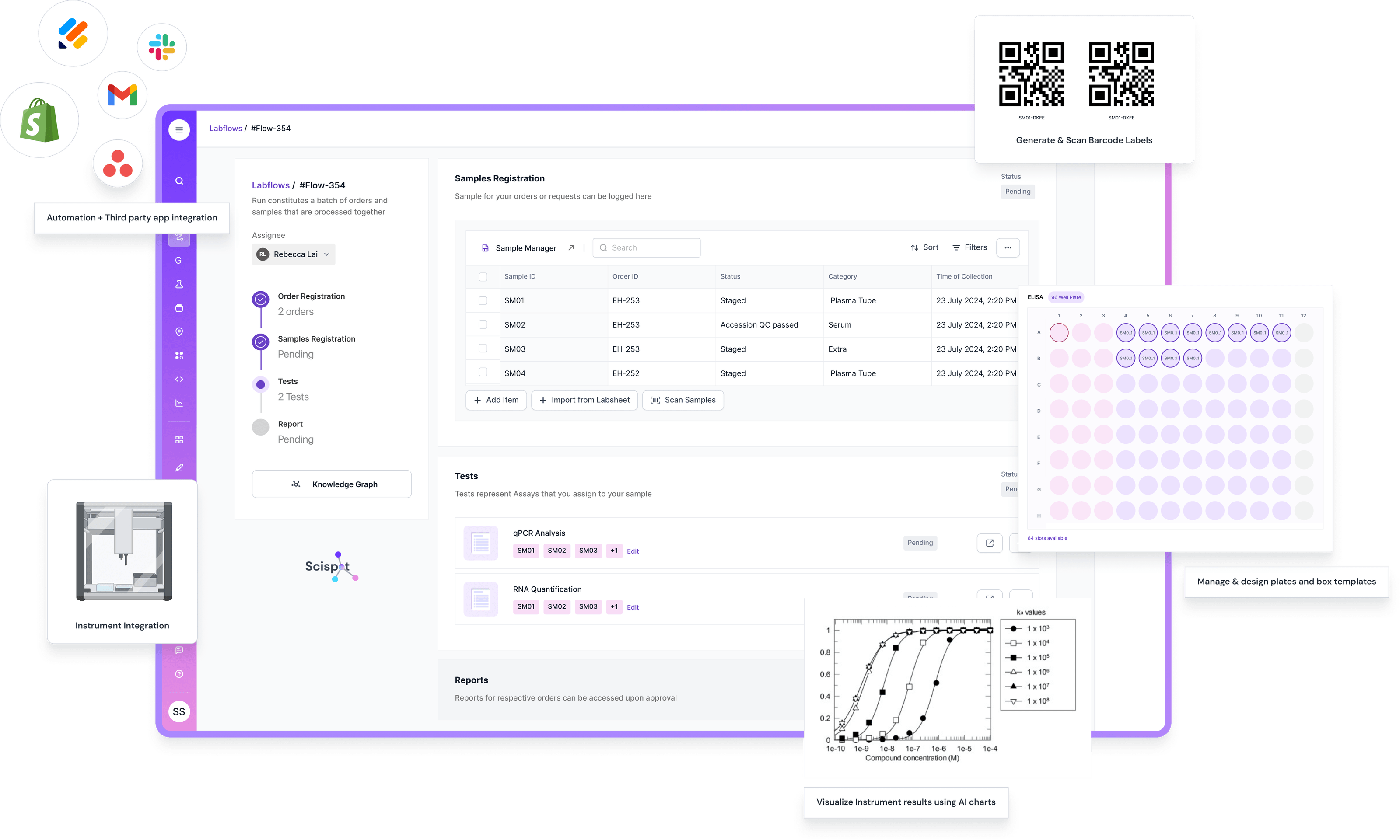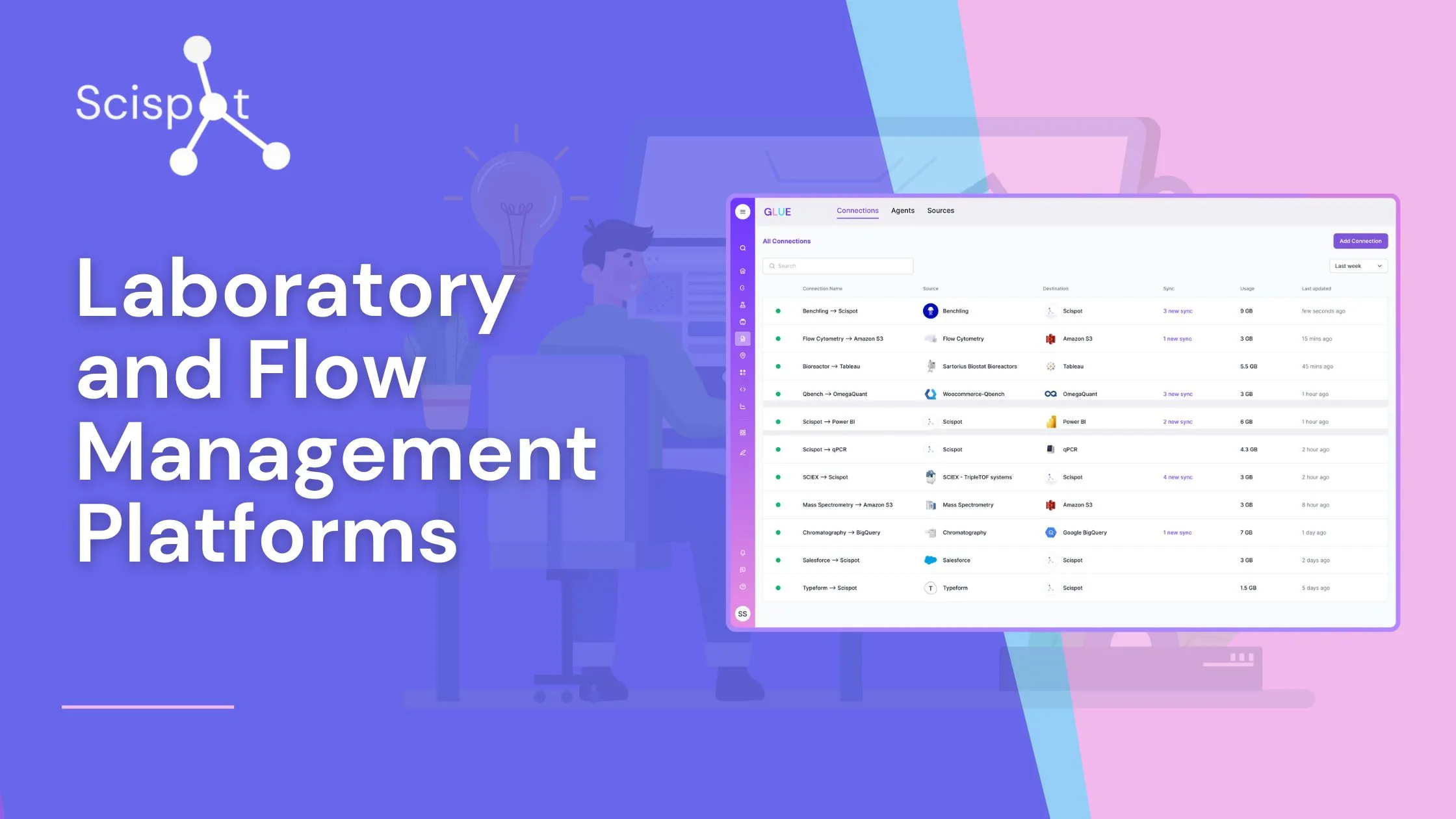Laboratories are complex environments with many moving parts. Managing these parts efficiently is crucial for success. Laboratory management software is a game-changer in this regard.
It streamlines operations, automates tasks, and enhances data management. This software is essential for labs aiming to improve productivity and accuracy.
From tracking samples to managing inventory, these platforms offer comprehensive solutions. They integrate various lab processes into a single, user-friendly interface.
The benefits extend beyond efficiency. They also include cost savings and improved compliance with industry standards.
In this article, we explore the features and advantages of laboratory and flow management platforms. Discover how they can transform your lab operations.
What Is Laboratory Management Software?
Laboratory management software is a comprehensive tool designed for modern labs. It combines different lab processes into one seamless system. This integration facilitates better organization and control over laboratory functions.
The software covers a wide range of tasks. It automates routine processes and ensures data integrity. Key components include sample tracking, inventory management, and workflow optimization.
These platforms are equipped with features like:
- Sample management
- Data management and reporting
- Inventory and stock management

Ultimately, laboratory management software is vital for labs seeking efficiency. It transforms manual processes into automated ones. This shift not only saves time but also boosts accuracy, enabling laboratory professionals to focus more on analysis and innovation.
Key Features of Modern Lab Management Platforms
Modern lab management platforms are rich in features that enhance productivity. They offer a centralized system for lab operations, ensuring seamless communication and data flow. These platforms integrate various modules that cater to different laboratory needs.
One of the primary features is laboratory data management. It provides secure storage and easy access to critical data. Moreover, this feature supports comprehensive data analysis, facilitating informed decision-making. Data integration capabilities allow for seamless data exchanges across different systems.
Another crucial component is laboratory sample management software. This feature tracks and manages samples efficiently. It ensures that each specimen can be traced accurately through its lifecycle. This reduces the risk of sample loss or misidentification.
Additional features include:
- Automated workflows for streamlined operations
- Inventory management to keep track of lab supplies
- User-friendly interfaces for quick adoption

These platforms often support customization to meet specific lab requirements. They also offer scalable solutions, enabling labs to expand functionalities as they grow. Implementing such features significantly boosts lab efficiency and data accuracy.
Benefits of Implementing Lab Operations Software
Implementing lab operations software can transform how laboratories function. It automates routine tasks, freeing up time for more critical activities. Automation leads to improved precision and reduces the risk of human errors significantly.
Another key benefit is enhanced data management. The software provides reliable and timely access to information, which is essential for effective decision-making. It also ensures data integrity and security, safeguarding sensitive data from unauthorized access.
Here are some specific advantages of using lab operations software:
- Reduces operational costs through improved efficiency
- Enhances compliance with industry standards
- Offers scalability for growing laboratory needs
Moreover, lab operations software facilitates seamless communication among team members. This fosters collaboration and accelerates project completion. By using such software, labs can achieve better outcomes and higher satisfaction among staff members.
Types of Laboratory Management Solutions
Laboratory management solutions come in various forms, each designed to address specific needs. Recognizing the right type for your lab can optimize efficiency and performance. Many labs benefit from a combination of solutions tailored to their unique processes.
One popular solution is the Laboratory Information Management System (LIMS). LIMS integrates different laboratory operations into a single cohesive platform. This system supports sample management, data collection, and analysis seamlessly.
For labs seeking budget-friendly options, free laboratory inventory management software can be invaluable. Despite being free, such software often provides essential inventory management tools, making it suitable for smaller labs.
Here are some common types of laboratory management solutions:
- Clinical laboratory management software
- Computer laboratory management software
- Laboratory stock management software
Additionally, some labs use laboratory automation software to streamline workflows and increase productivity. These solutions contribute to faster processing times and reduced human intervention, creating a more efficient lab environment.

How Laboratory Management Software Optimizes Lab Workflow
Lab workflows play a crucial role in determining the overall efficiency of laboratory operations. Laboratory management software significantly enhances these workflows through automation and centralized data management. This results in faster processing times and improved accuracy.
Automating routine tasks reduces manual handling, minimizing errors and freeing up staff for more vital activities. Lab management software offers streamlined communication among team members, ensuring that information flow is consistent and reliable. This leads to better collaboration and fewer misunderstandings.
Several ways in which lab management software optimizes workflow include:
- Real-time sample tracking
- Automated data entry and analysis
- Enhanced scheduling and resource allocation
The integration of lab workflow software with existing systems ensures seamless operations. This synchronization further reduces bottlenecks and enhances overall laboratory productivity.

Choosing the Right Lab Management Platform
Selecting the right lab management platform is crucial for efficient lab operations. Consider your lab’s specific needs before making a decision. Different labs require different functionalities based on their workflows and goals.
Cost is an important factor to weigh in your selection process. Consider both the upfront licensing fees and ongoing maintenance costs. Evaluate whether features like free laboratory inventory management software meet your lab’s requirements.
Key criteria to consider when choosing a lab management platform:
- Compatibility with existing systems
- User-friendliness
- Scalability and flexibility for future growth
Vendor reputation and support services also play a vital role in choosing a platform. Check customer reviews and experiences for insights. This can guide your decision-making and result in a software solution that truly benefits your lab.
Integration, Security, and Compliance Considerations
Effective integration is crucial for successful lab management software implementation. Seamless data exchange between systems enhances efficiency. Ensure the software integrates well with existing equipment and platforms.
Security cannot be overlooked in labs handling sensitive data. Choose software with robust data protection measures. Compliance with standards such as ISO and GLP is essential for regulatory adherence.
Key considerations for integration, security, and compliance:
- Comprehensive data encryption
- Compatibility with existing lab systems
- Adherence to industry regulations
Focus on these aspects to maintain data integrity and meet legal requirements. Properly integrated and secure lab management solutions lead to improved lab operations.

Future Trends in Laboratory Software Solutions
The future of lab software promises exciting advancements. Automation and AI will play key roles in transforming lab operations. These technologies will increase efficiency and accuracy across various lab processes.
Other trends include greater emphasis on cloud-based solutions and enhanced data analytics. Labs will increasingly rely on real-time insights for decision-making.
Anticipated trends in lab software solutions:
- Integration of AI and machine learning
- Increased cloud-based deployments
- Enhanced real-time data analytics
Embracing these trends will offer labs unprecedented opportunities for growth and innovation. Keeping abreast of these changes is vital for maintaining competitive advantage.
Scispot: The AI-Ready System of Action for Modern Labs
Unlike traditional Laboratory Information Management Systems (LIMS) or Electronic Lab Notebooks (ELN), Scispot® combines laboratory management, data integration, and automation into one unified platform built for the AI era. It is API-first, enabling seamless interoperability with instruments, robots, and analytics tools, while maintaining regulatory compliance (ISO 17025, CLIA, CFR Part 11). Scispot transforms complex experimental data into structured, analysis-ready formats through its Labsheets® and GLUE data engine, eliminating manual data entry and siloed workflows. It also supports multi-agent AI automation that generates protocols, performs analysis, and syncs results across systems in real time. With these capabilities, Scispot empowers labs—from diagnostics to bioprocessing—to become AI-powered, self-driving environments that scale faster, reduce errors, and gain actionable insights from every experiment.

Conclusion
Laboratory management software is no longer a luxury—it’s the backbone of modern scientific operations. As labs grow in complexity and data volume, manual workflows can no longer sustain accuracy, speed, and regulatory demands. Implementing a robust platform not only enhances productivity but also ensures traceability, collaboration, and long-term scalability. By integrating automation, analytics, and compliance into one cohesive system, laboratories can transition from reactive management to proactive innovation.
However, choosing the right platform determines the magnitude of transformation. Scispot® stands apart as more than a management tool—it is the AI-ready operating system for laboratories. Built on an API-first foundation, Scispot connects instruments, robots, and computational tools into a unified data fabric. Its Labsheets® standardize data entry and structure while its GLUE engine ensures seamless data exchange across workflows. With AI agents that automate documentation, analysis, and reporting, Scispot doesn’t just digitize lab work—it makes it intelligent. For labs striving to eliminate silos, accelerate R&D, and achieve compliance effortlessly, Scispot offers the foundation for a self-driving lab future—where every experiment generates knowledge, and every dataset powers discovery.





.webp)
.webp)
.webp)



